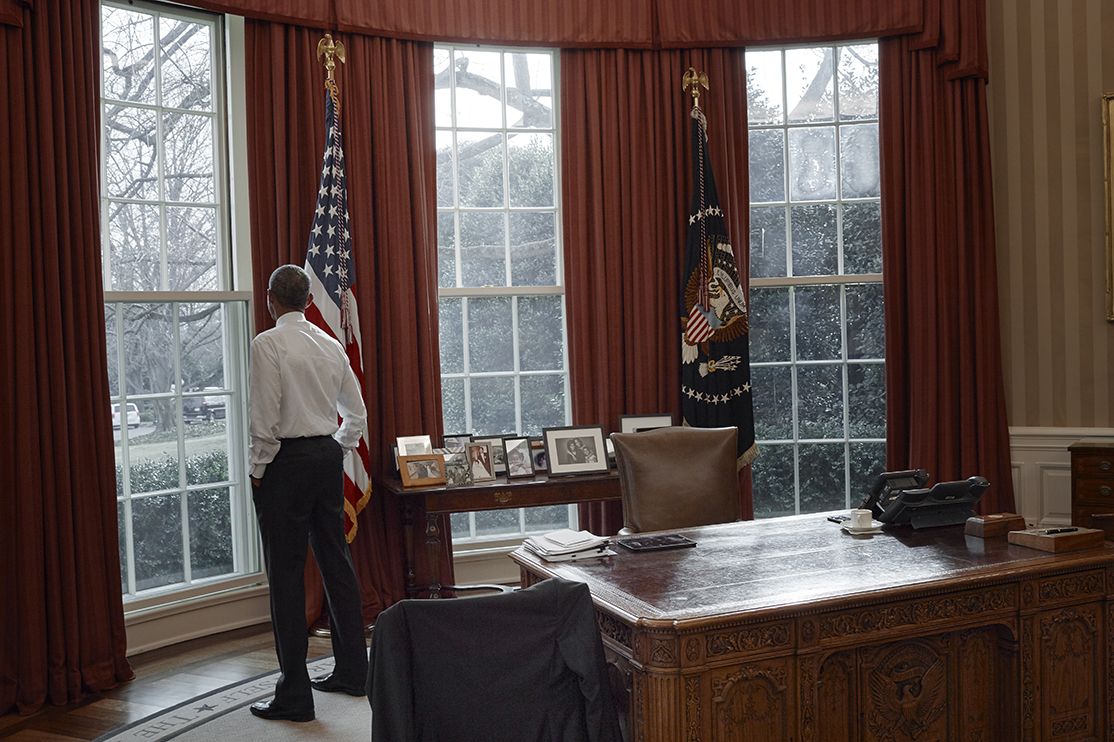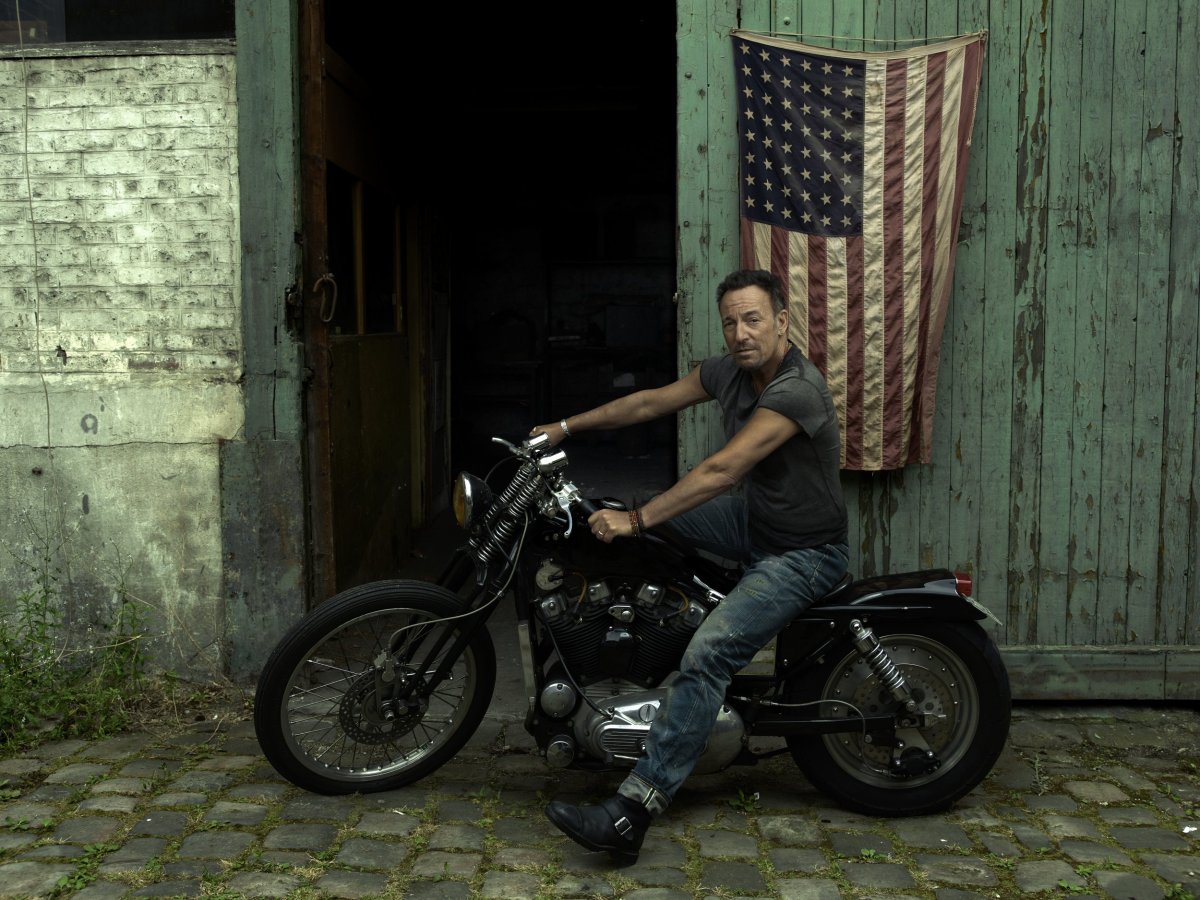
For Annie Leibovitz, one of the main motivations for publishing a new volume of her work was knowing what the final picture would be.
"It was August and the presidential election was three months away," she wrote in the book, parts of which she read at a talk held last week at the Southbank Centre's Literature Festival in London, U.K. "It would end with a portrait of Hillary Clinton at the White House."
"I planned my shoot and spent a lot of time imagining what desk she would choose for the Oval Office. Was one of Eleanor Roosevelt's desks available?" she said. "Then Hillary lost and the years 2005 to 2016 now seem like a time to its own."
A picture of Hillary Clinton working at her desk during the time as Secretary of State would still find its way into the book, titled Annie Leibovitz: Portraits 2005–2016, along with dozens of other portraits of intellectual, political and popular figures that came to define a decade in which, according to the photographer, "the culture was shifting in ways we did not quite take in."
Absent the portrait of Clinton, Leibovitz instead picked a photo of President Barack Obama, his back to the camera, looking out of the Oval Office's window. She took it during a quick shoot on January 19, just before he vacated the White House and his successor, Donald Trump, moved in.
The Trumps are included in the book, in a photograph that first appeared in Vogue in 2006. Wearing a golden bikini and matching high heels, an open trench coat hanging loosely on her back, a pregnant Melania Trump stands on the staircase of a plane, the curve of her belly highlighted in the profile pose, one hand on her hip and the other on the handrail. She occupies roughly half the image, the other half featuring a sports car with Donald Trump just barely visible at the wheel.
"It tells you who they are" Leibovitz commented.
#fbf 2006 @annieleibovitz for @voguemagazine @nypost #flashbackfriday pic.twitter.com/Nk9UU6lVCs
— MELANIA TRUMP (@MELANIATRUMP) May 30, 2014
Leibovitz's strength as a photographer isn't just her eye for composition and color, but also the way she manages to get her subjects, often very-well known people, to offer a glimpse of themselves rarely seen in public.
No better artist than her then to introduce Caitlyn Jenner to the public in the now-iconic July 2015 cover of Vanity Fair. "It was a wonderful moment of seeing a person transformed," Leibovitz said.
Even Queen Elizabeth II is a fan of her work. Having once photographed the British monarch in her royal robes, Leibovitz returned in 2016 for the queen's 90th birthday.
Elizabeth II had three requests. "She wanted to be photographed with Princess Anne [her daughter], she wanted to be photographed with her dogs and she wanted to be photographed with her grandchildren—I don't know what that means, but this was her list," Leibovitz said.
Putting the book together gave the photographer the opportunity to look back at certain pictures and see them through different eyes at different times. "Photographers don't look back at their work enough to understand what they did," she said.

On occasions, a photograph taken to symbolize something in a certain moment can take on another meaning later on, depending what has happened between the moment it is captured and the moment it is viewed. Leibovitz knows this well, as she was the last photographer to capture John Lennon and his wife Yoko Ono in a photoshoot for Rolling Stone in December 1980, just a few hours before the former Beatles singer was killed.
Somewhat similarly, Leibovitz's inclusion of disgraced Hollywood producer Harvey Weinstein in her book is particularly striking in light of the dozens of women who have accused him of bullying, sexual assault and rape, allegations he denies.
"We were supposed to take this out," she joked, as the picture of Weinstein with his brother standing on either side of their mother appeared on the slideshow. "I have nothing to say, except he's here with his mother who's probably rolling over in her grave right now. I guess I was trying to say even Harvey Weinstein is human."
Uncommon Knowledge
Newsweek is committed to challenging conventional wisdom and finding connections in the search for common ground.
Newsweek is committed to challenging conventional wisdom and finding connections in the search for common ground.
About the writer
Sofia Lotto Persio reports mainly on Asia and gender issues for Newsweek. She previously covered international affairs with a specific ... Read more
To read how Newsweek uses AI as a newsroom tool, Click here.








